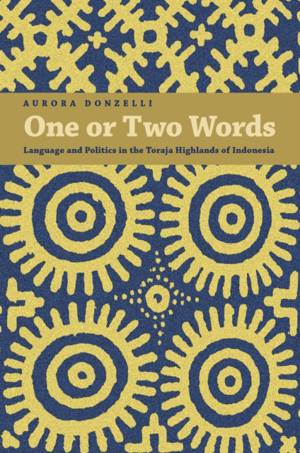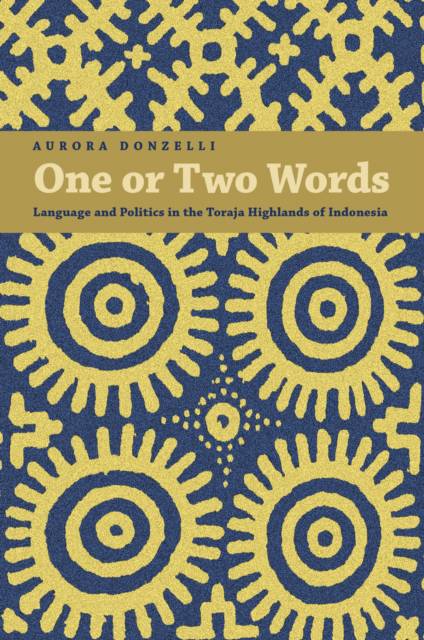
- Afhalen na 1 uur in een winkel met voorraad
- Gratis thuislevering in België vanaf € 30
- Ruim aanbod met 7 miljoen producten
- Afhalen na 1 uur in een winkel met voorraad
- Gratis thuislevering in België vanaf € 30
- Ruim aanbod met 7 miljoen producten
Zoeken
One or Two Words
Language and Politics in the Toraja Highlands of Indonesia
Aurora Donzelli
Hardcover | Engels
€ 68,95
+ 137 punten
Omschrijving
The Toraja highlanders of Indonesia use the expression "one or two words" to refer euphemistically to their highly elaborate form of political speechmaking. Taking off from this understatement, which signals the meaningfulness of transient acts of speech, One or Two Words offers an analysis of the shifting power relations between centers and peripheries in one of the world's most linguistically diverse countries. Drawing on long-term fieldwork, Aurora Donzelli explores how people forge forms of collective belonging to a distinctive locality through the exchange of spoken words, WhatsApp messages, ritual gifts of pigs and buffaloes, and the performance of elaborate political speeches and ritual chants. Donzelli describes the complex forms of cosmopolitan indigeneity that have emerged in the Toraja highlands during several decades of encounters with a variety of local and international interlocutors, and by engaging wider debates on the dynamics of cultural and linguistic change in relationship to globalizing influences, the book sheds light on a neglected dimension of post-Suharto Indonesia: the recalibration of power relations between national and local languages. One or Two Words will be of interest to scholars of language, politics, power relationships, identity, social change, and local responses to globalizing influences.
Specificaties
Betrokkenen
- Auteur(s):
- Uitgeverij:
Inhoud
- Aantal bladzijden:
- 320
- Taal:
- Engels
Eigenschappen
- Productcode (EAN):
- 9789813251144
- Verschijningsdatum:
- 26/09/2020
- Uitvoering:
- Hardcover
- Formaat:
- Genaaid
- Afmetingen:
- 157 mm x 231 mm
- Gewicht:
- 589 g

Alleen bij Standaard Boekhandel
+ 137 punten op je klantenkaart van Standaard Boekhandel
Beoordelingen
We publiceren alleen reviews die voldoen aan de voorwaarden voor reviews. Bekijk onze voorwaarden voor reviews.











